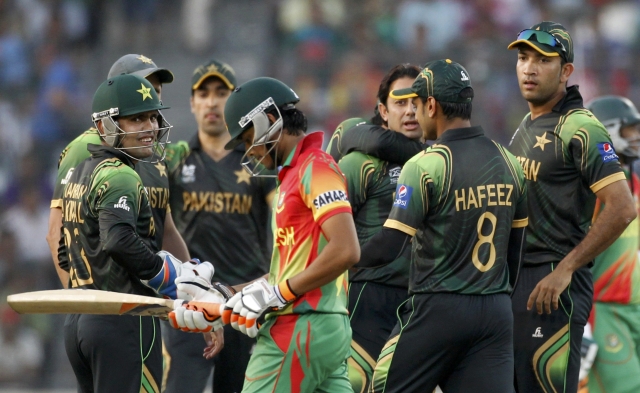My school was West End High School; one of the older schools in Dhaka. It was located right on the border line of the Old and the New Dhaka. Lalbagh was behind our backside boundary wall and Azimpur by the front main gate. Azimpur Colony, at that time, was the residential excellence of the top government bureaucrats in the country. The students of our school came from all walks of society; from well-to-do families to poor households. Some spoke upper class Bangla, others felt more comfortable with the local Dhaka dialect (the Kuttyi dialect). Our own playground was rather small, still everyday we wanted to come early to school, so that we could play and run freely. For bigger sporting events we borrowed fields inside the Azimpur residential area. For still bigger occasions like football or cricket tournaments we had to walk a short distance to Lalbagh fort, there was a huge open field there. Sweet memories of school days still haunt us; the pleasant blend of study and fun will never fade. In the SSC Board exam our batch fared well, exceptionally well. Many of our batch-mates, later in their professional life, excelled. Many took part in the 1971 Liberation struggle at a very tender age. Ours was a happy Bengali school generation.
I experienced a similar situation with my daughter’s schooling in Stockholm and Helsinki. Sweden and Finland are child-friendly countries; schools are seen, as everywhere, as institutions for learning. But that learning there is not confined only to textbooks; playgrounds, water pools, friends and teachers are all part to it. In many ways I could see a parallel between schools in two parts of the world; though they were located miles apart. The common was a mood of tranquillity; a sanctuary to master life skills and prepare for adulthood as a complete man.
My two sons now attend an English-medium school in Dhaka. I sometimes try lifting their school bags; they are heavy. I see them struggling through their home work. Standing at the school gate I see kids rushing out to their parents; many of them are unusually bulky; carrying the same heavy rucksack on shoulder as my own children. I know there is no playground inside the compound. I know playgrounds for children in Dhaka are long gone. And kids don’t have time to play. They have to go to school, do their home work, and hurry from one place to another to attend classes at coaching centres. Parents demand the best out of their sons and daughters; best grades to be able to withstand future competition. We have a population of 160 million; job market is tight; it will get tighter. Parents have turned into prison guards for their own kids; despite all the heavens’ good intentions. How much pressure a child can endure?
* * *
The Bangladesh cricket Tigers once again got defeated; this time by the Pakistan team. Our players bowled miserably; their fielding was appalling and their bating awful. This was their 14th defeat in a short period; followed by its defeat against India, West Indies and Hong Kong. I updated my facebook status — the tigers of Sundarbans should file a lawsuit against the fake cricket Tigers; the latter have “defamed” their reputation.
The following evening, while stuck in a traffic jam, a couple of giant billboards attracted my attention; later I noticed they were all over the capital city. The billboards were about cricket. In one of them the PM was handing over a trophy to our cricket captain Mushfiqur, beside him stood the BCB President. It did not say what that trophy was. The slogan in Bengali there roughly translated as “Bangladesh dreams through your achievements.” The other carried a huge portrait of Bangabandhu. The slogan there said, “Ignite with the common dream.” Both were put by the Cricket Board. I suddenly could see a parallel.
Mushfiqur appeared to be a school boy to me; our players all indeed are very young. After each defeat Mushfiqur routinely mumbles in front of the TV camera, “I beg apology to our fans, our boys once more have let them down …” I felt as if the cricketers are children and we are their parents. Parents are whipping their children — more, harder, higher! We labelled our cricketers as Tigers; we choked them with the dreams of Bangabandhu. The hype is colossal. It just is getting bad to worse. All these are encouragement and expression of sincere support; one could argue. The parents of our kids also see their demands on their kids the same way. But there certainly is a difference between enthusiasm and hype. The latter is unhealthy, burdensome; it cripples one whom we target it for. The pervasive claims that we publicly put on our cricketers are beyond all proportions and decency. I felt ashamed for my facebook status. It is not the cricket Tigers that we should be disappointed with. It is we who are to blame — we — who put such an enormous burden on the shoulders of our young cricketers, even before they step into the playground. How much pressure a cricketer can endure?
The proposal therefore is to stop this inhumane treatment of our cricket heroes. Let us treat cricket as it is; a game — a game bearing no links to politics or prestige; a game that arouses pleasure irrespective of win or defeat. A win brings satisfaction, and loss sorrow; but all within a reasonable limit. Let us set our Tigers free from the captivity of our misplaced expectations.
—————————
Iftekhar Hossain is an economist and a writer.
Source: bdnews24










